
GLOS Staff and Board
Staff
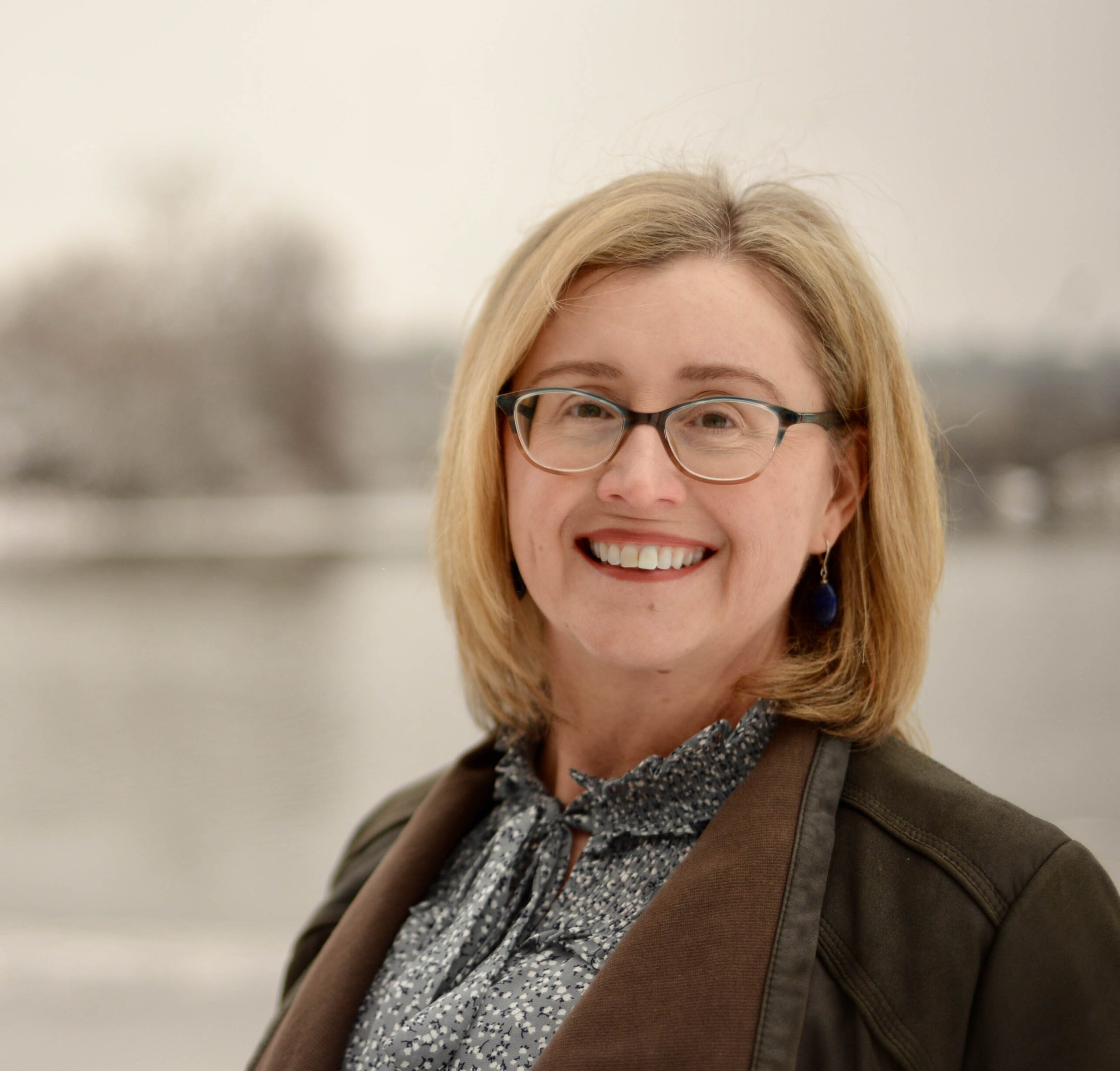
Jennifer Boehme, Chief Executive Officer
Jennifer became GLOS’ chief executive officer in 2023 after serving as the board chair. Previously, she served as an environmental scientist at the International Joint Commission (IJC)’s Great Lakes Regional Office in Windsor, Ontario and assisted the IJC in advising governments of the United States and Canada on water quality issues affecting the Great Lakes. She served as Secretariat to IJC’s Health Professionals Advisory Board, which provides guidance to the IJC on current and emergent clinical and public health issues in the area of Canada-US transboundary environmental health. Prior, Jennifer spent 10 years as a research scientist for the University of Maine and the Smithsonian Institution, and, before joining the IJC, delved into science policy and communication at the National Science Foundation via a fellowship with the American Association for the Advancement of Science. She holds A Ph.D. in Marine Science from the University of South Florida and a B.S. in Chemistry from Emory University.
Contact Jennifer at jennifer@glos.org.
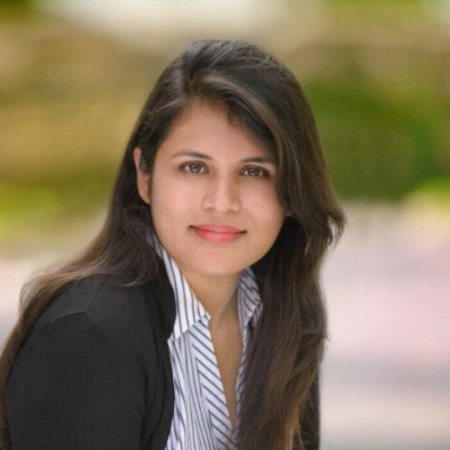
Sneha Bhadbhade, Senior Advisor
Sneha first joined GLOS as a data services manager in December 2018 after working as a GLOS data management fellow. Prior to her work at GLOS, she worked as an ERP consultant for four years before earning her master’s degree in information science from University of Michigan in 2017. Sneha brings experience in management of information systems to her role as she works to better suit the data and information needs of GLOS users.
Contact Sneha at sneha@glos.org.
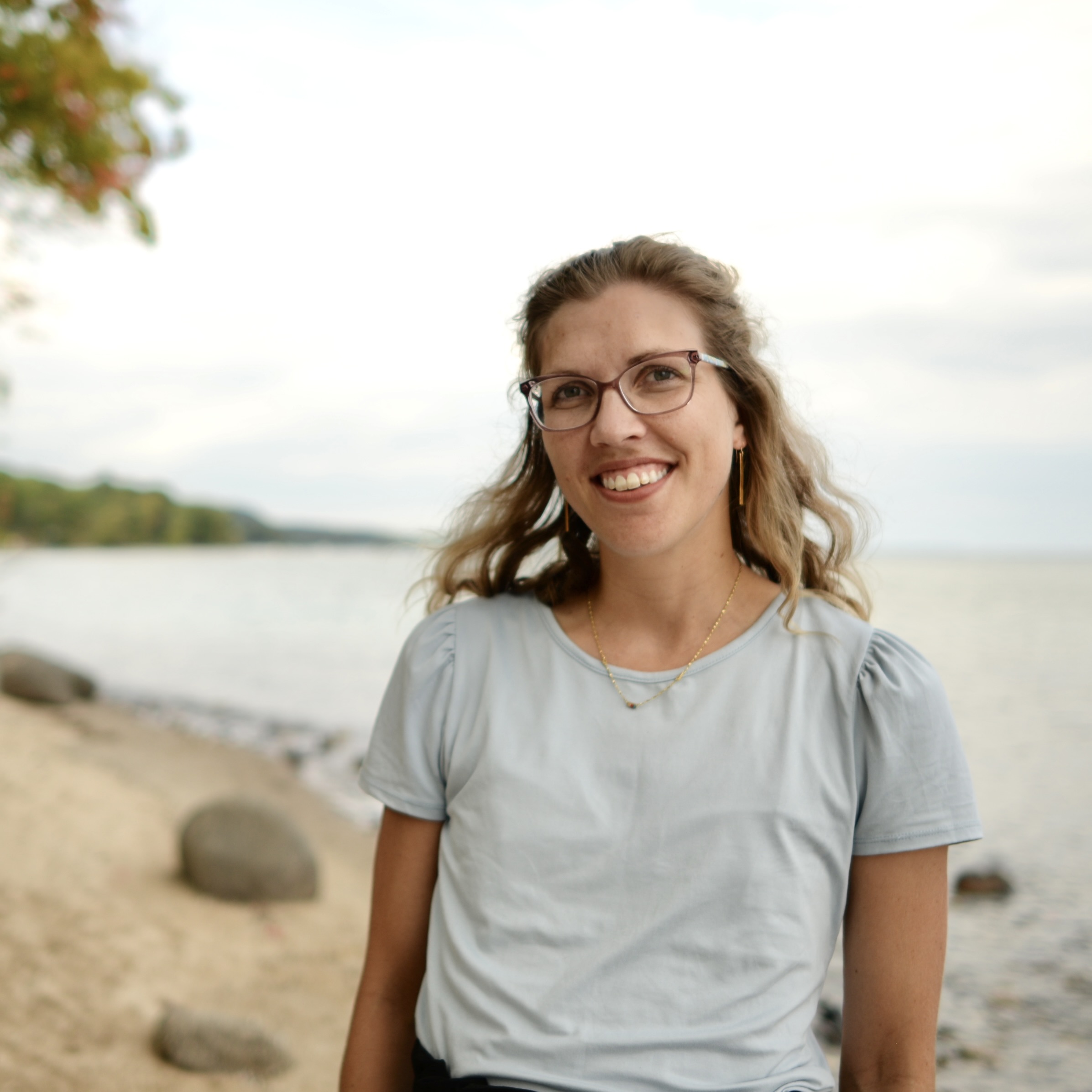
Shelby Brunner, Science and Observations Manager
Shelby has been a part of the GLOS team since 2020. Her work includes interfacing with the data platform operators, tracking observing technology trends, and contributing to scientific aspects of GLOS’ work. Shelby brings observing expertise from experience at NOAA’s Global Ocean Monitoring and Observing Office and the University of Wisconsin-Milwaukee’s School of Freshwater Sciences. In her various roles, she has worked to improve in-situ observing systems by conducting field research with novel technologies, managing observing projects with numerous partners, coordinating publications, and organizing conferences.
Outside of work, Shelby enjoys spending time with family and friends, baking, and being outdoors. She has lived on three of the five Great Lakes and has spent time on four of the five. Her favorite Great Lakes memories are the many nights spent on Green Bay after a long day of research: returning to port, eating an ice cream bar, and enjoying the sunsets.
Contact Shelby at shelby@glos.org.
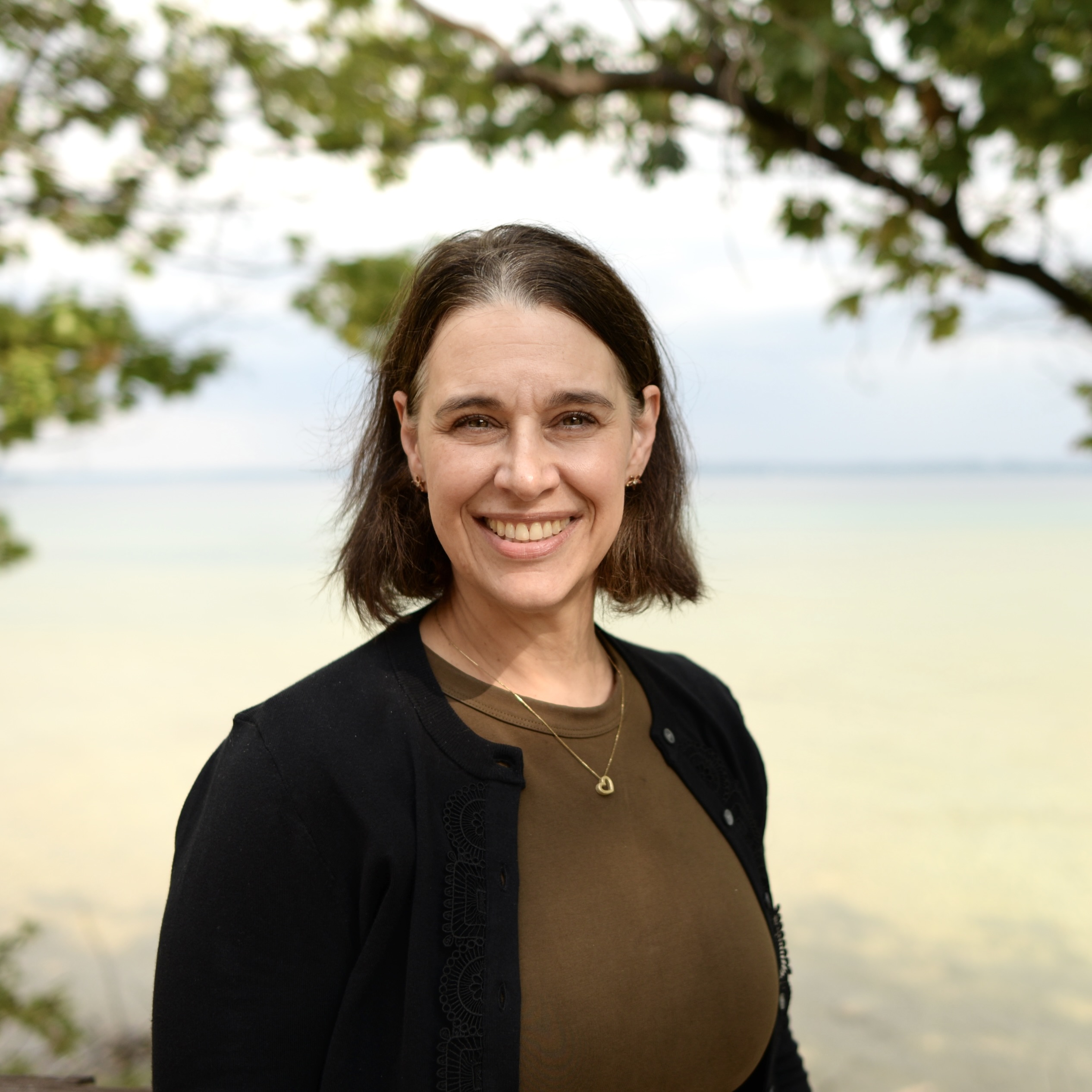
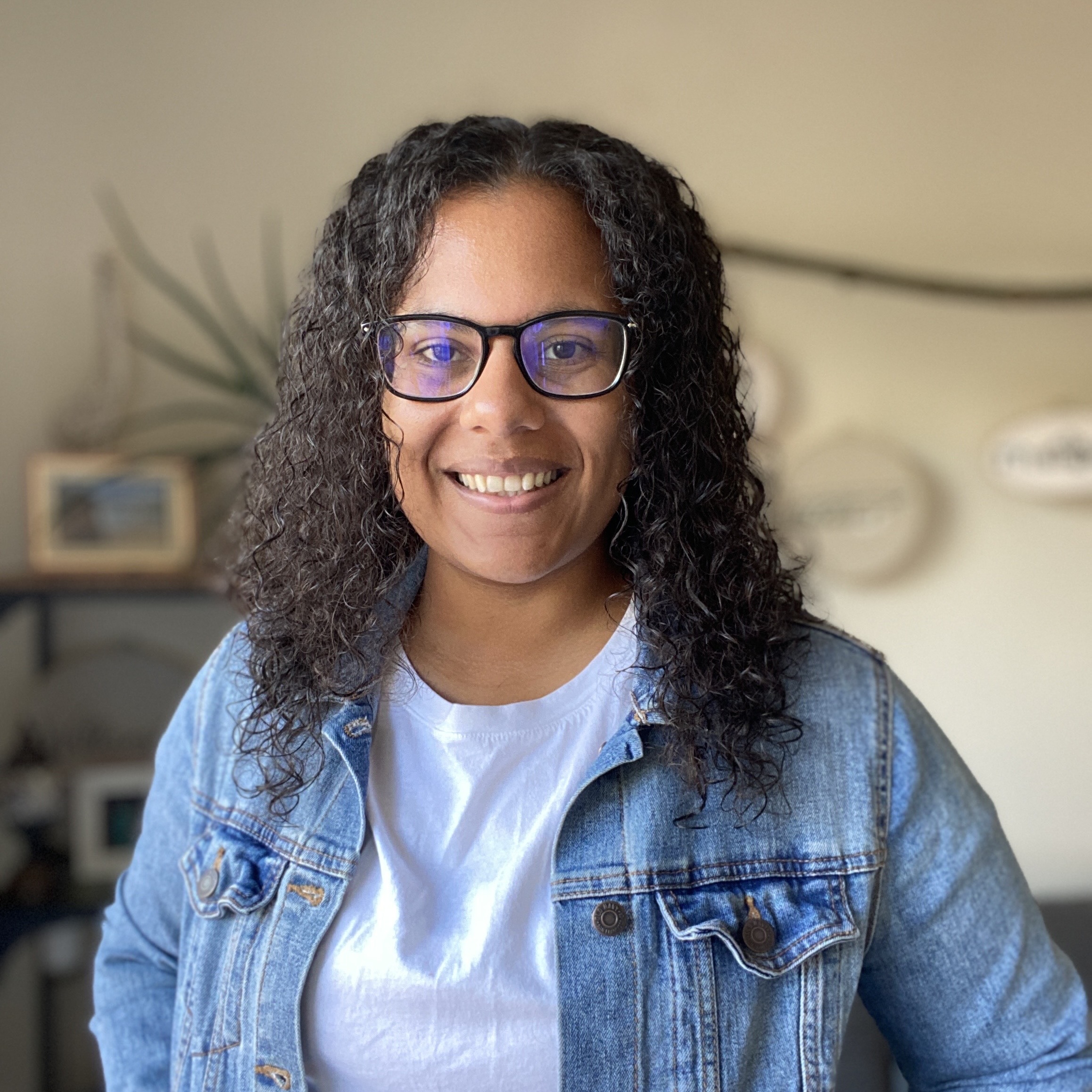
Cassondra Jones, Grants Management Specialist
Cassondra Jones is a Michigan native with extensive experience in managing and optimizing grant programs across various sectors. With a strong background in overseeing federal and private funding initiatives, Cassondra specializes in grant administration, process improvement, and compliance management. She holds a Master of Social Work (MSW) degree from Michigan State University, where she also earned a Bachelor’s degree in Human Development. Throughout her career, she has successfully administered grants for initiatives focused on economic revitalization, public health, and community development. Passionate about creating opportunity through grantmaking, Cassondra is committed to ensuring resources are allocated effectively to foster lasting impact.
Outside of work, Cassondra enjoys traveling with her husband and their cat, Sheba. They love exploring new destinations, from the rugged mountains out west to the quiet beauty of Michigan’s lakeshores and forests. Whether it’s searching for agates on Lake Superior, watching sunsets over Lake Michigan, or exploring the hidden gems in small towns along the shoreline, Cassondra finds joy in discovering new communities and their local, hidden-gem businesses.
Contact Cassondra (Sondra) at sondra@glos.org.
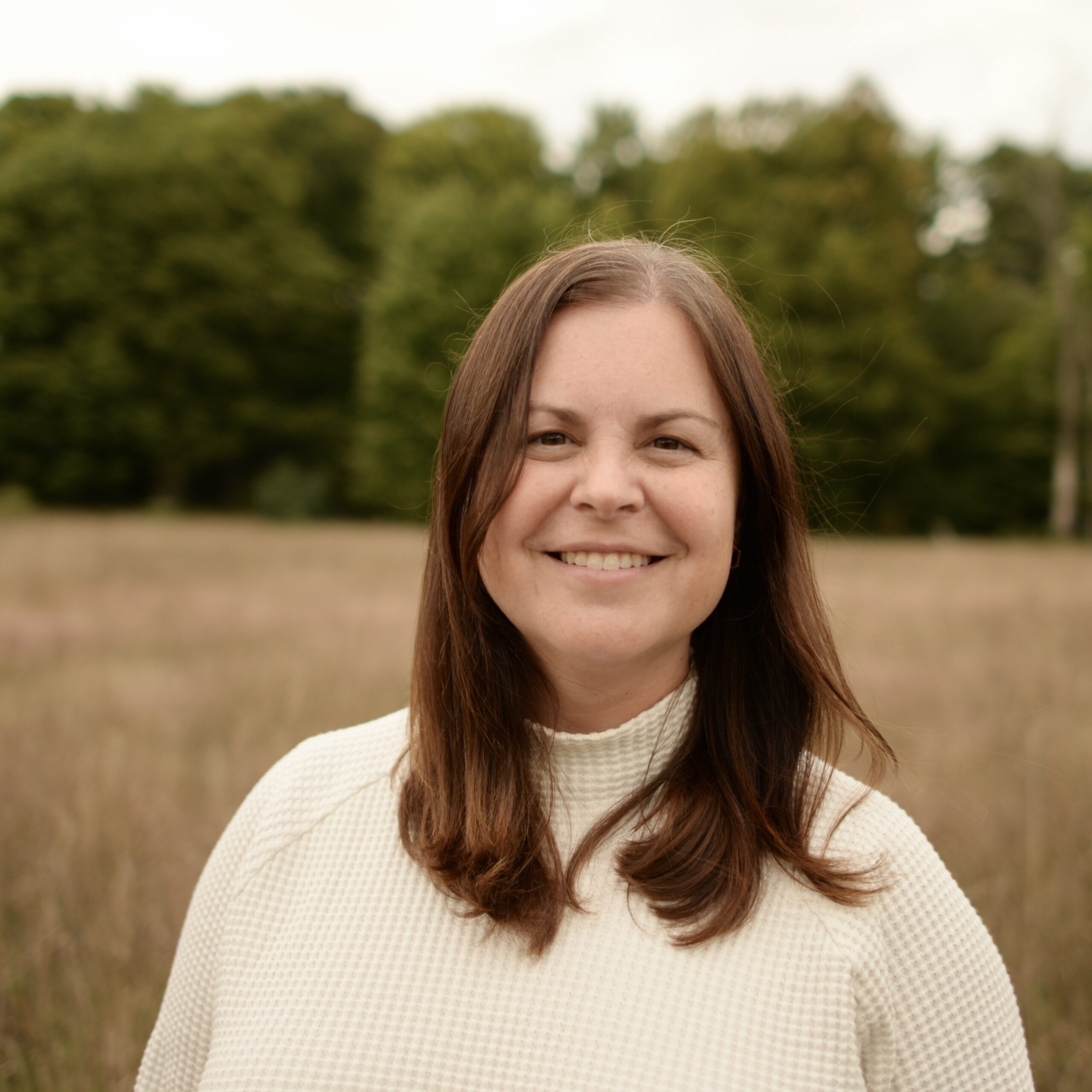
Katie Rousseau, Strategic Initiatives Manager
Before joining GLOS, Katie spent over a decade at American Rivers, a national conservation nonprofit, in various roles advocating for stormwater and drinking water infrastructure policy improvements as well as implementing green infrastructure projects in the Great Lakes region. She has a M.A. in geography and GIS certificate from the University of Toledo and a B.S. in education from Ohio University. Katie enjoys spending time with her family, going to concerts, traveling to new places, reading, and taking her dogs for walks.
As Strategic Initiatives Manager, Katie brings her deep understanding of the region and its water-related organizations to build partnerships and a policy framework for Great Lakes data management and innovative technology opportunities.
Contact Katie at katie@glos.org.
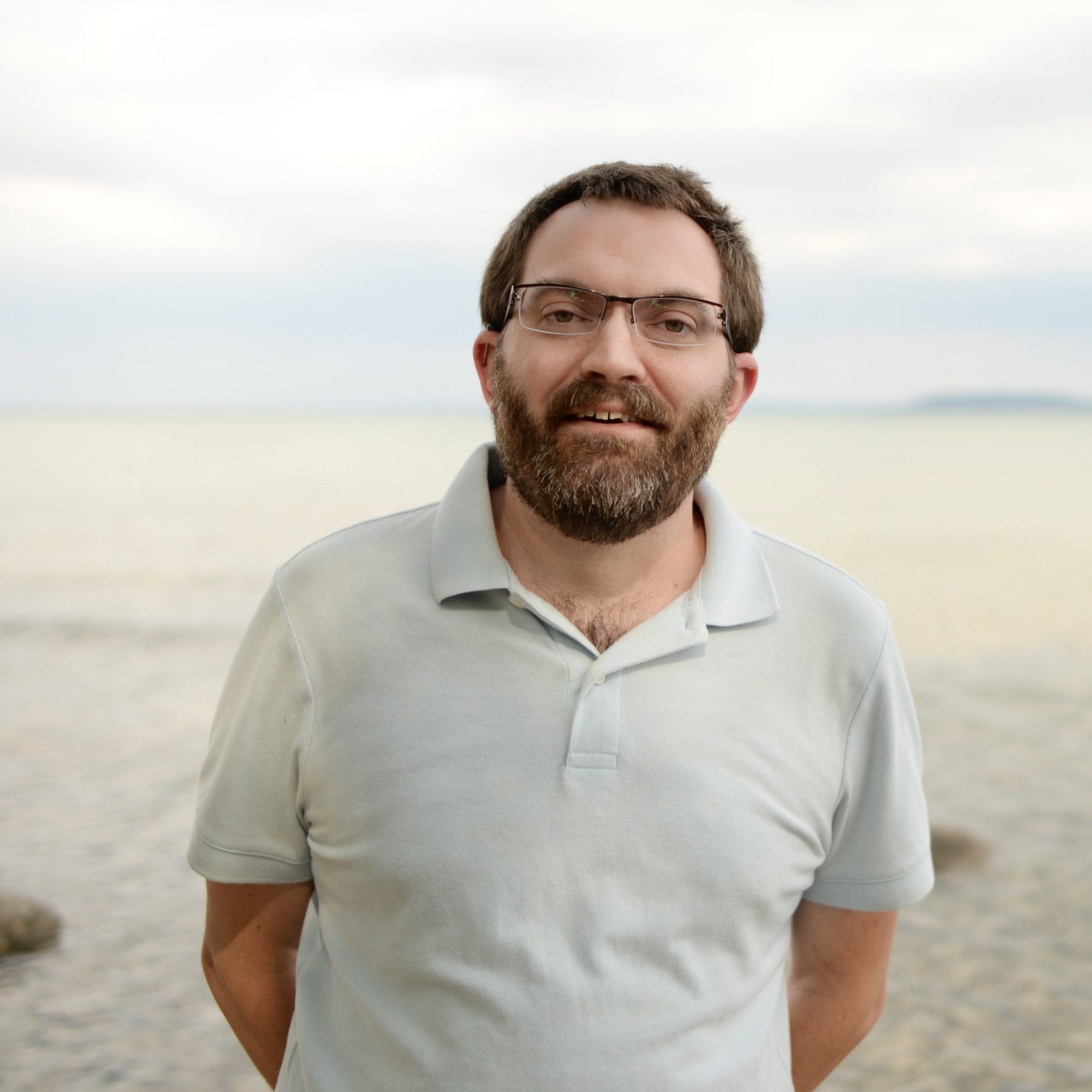
Joe Smith, Cyberinfrastructure Engineer
Before joining GLOS, Joe spent nine great years at the University of Michigan’s Cooperative Institute for Great Lakes Research (CIGLR) at the NOAA Great Lakes Environmental Research Laboratory (GLERL) as a general programmer and analyst. He produced data visualizations on multiple platforms and for scientific papers. Born and raised near Ypsilanti, MI, he studied math and computer science at Washtenaw Community College and Data Science at the University of Michigan. Never one to miss a fair joke or pun, in spare time you may find him competing in Tetris99, plucking guitar, taking binoculars to the stars, while also caring for a cat quartet and a very good Daschund. He is also President of his condo association, and a Park Commissioner.
Joe maintains and further develops GLOS’ IT cyberinfrastructure, most importantly the GLOS website and GLOS’ current observing and data dissemination platform Seagull. He also helps coordinate data providers’ onboarding of new buoys, stations, and static data onto Seagull.
Contact Joe at joe@glos.org.
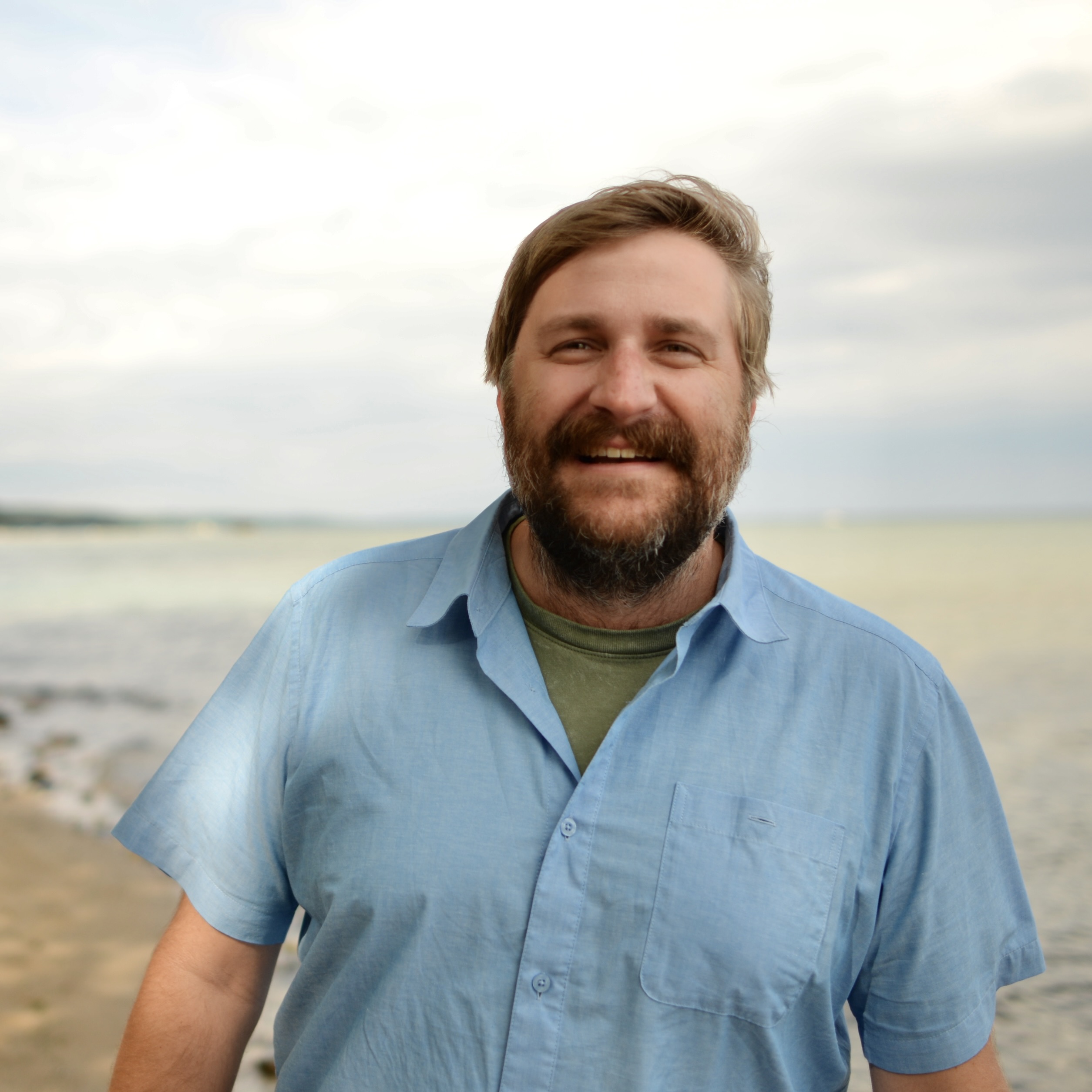
Mike Sutherland, Marine Geospatial Analyst
Mike came to GLOS from the National Snow and Ice Data Center, where he helped manage remotely sensed data from NASA satellite missions. Prior to that, he spent over a decade working in the coastal/marine realm, most notably at the NOAA National Centers for Environmental Information and NOAA Coastal Services Center. His work primarily focused on topo-bathymetric digital elevation modeling and processing and the analysis of coastal elevation data. Mike’s experience also includes working for a lidar acquisition firm supporting various coastal mapping projects. He holds a Master of Environmental Science degree from the College of Charleston.
Contact Mike at mike@glos.org.
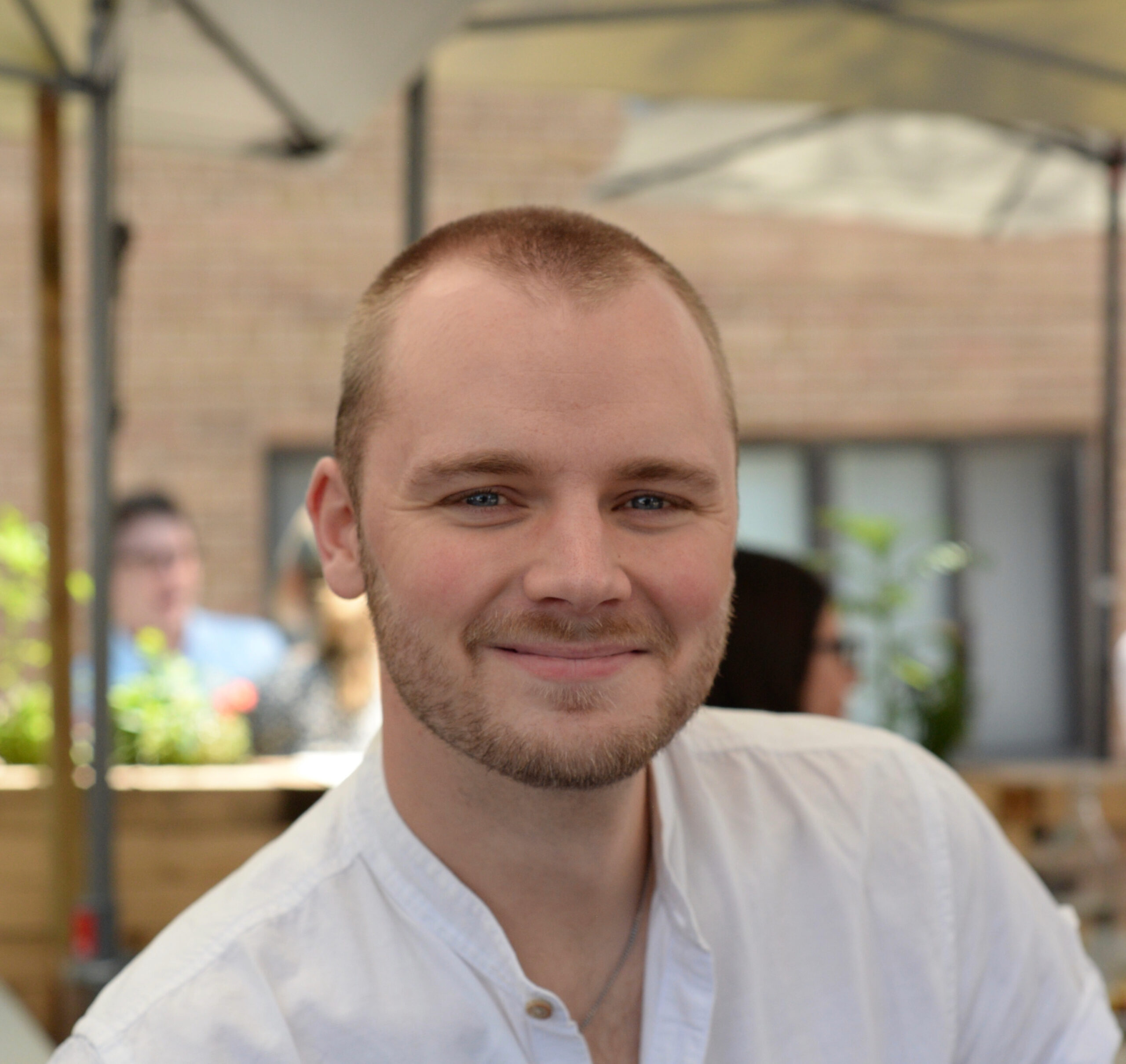
Samuel Johnson, Communications Specialist
Sam joined GLOS in 2023, shortly after completing his Master’s of International Studies at DePaul University in Chicago. Previous to that he earned his BA in International Studies at the University of Wisconsin-Madison. His Master’s research was focused on natural resource extraction and international law of the Great Lakes region. During his time in grad school, Sam volunteered with organizations in Chicago, becoming more aware of the many interconnected and overlapping organizations and communities committed to the local waterways. Through this and his years of studies and research, Sam has developed a knowledge of the varied social and political landscapes and the diverse cultural interactions surrounding the Great Lakes.
Sam has an endless list of interests, including photography, film, and writing. He also enjoys traveling and exploring new cities and wildernesses. Sam has spent many nights in the mountainous backcountry, but his heart lies in the lakes and rivers of the midwest. Having spent his life enjoying the natural wonders of the Great Lakes and its regional states, Sam is thrilled to put his passion and relentless energy to work at GLOS.
Contact Sam at sam@glos.org.
Board
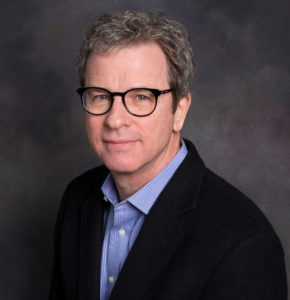
Thomas Rayburn, Chair
Thomas has over 30 years’ experience working for national environmental and engineering consulting firms, regional partnerships including the Great Lakes Commission, the U.S. Coast Guard, and Lake Carriers’ Association. His project work has supported the U.S. Environmental Protection Agency, Department of Defense, other federal agency initiatives, private industry and international cooperative efforts on the environment. He has a Bachelor of Science in Geosciences from Purdue University.
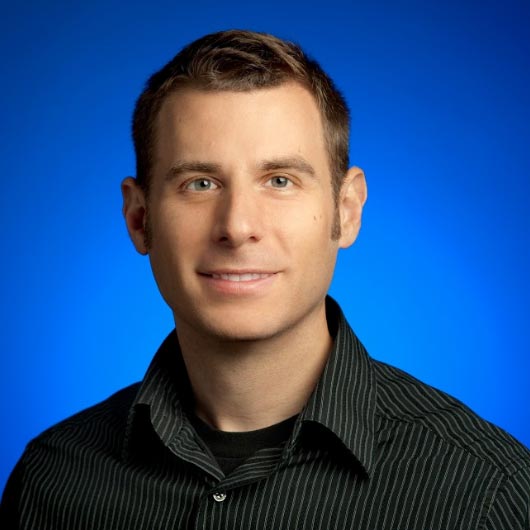
Pete Giencke, Vice Chair
Pete has over ten years of experience in information technology and geographic information systems (GIS). At Google, he has contributed to various big data efforts in both an engineering and product manager capacity, including those on the Crisis Response, Google Earth, and Google Ocean teams. On Google’s Crisis Response team, Pete additionally serves as an “Incident Commander”, helping lead the company’s response to major disasters worldwide, including the Fort McMurray fires in Alberta, CA.
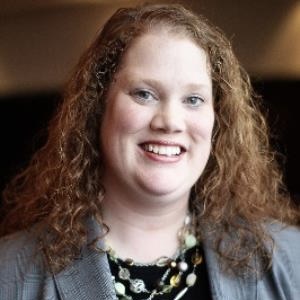
Annie Atkinson, Treasurer
Annie is the Director of Finance at the University of Michigan’s Stephen M. Ross School of Business. She is a proven leader with a wealth of experience in finance management from nearly twenty years in the field.
Annie is the newest member of the GLOS Board of Directors. She was voted in June of 2024. Her love for Michigan, the Great Lakes, and the entire upper Midwest region is a big motivating factor for her participation. Along with personal and professional connections with GLOS, her excitement for the intriguing uses of technology, and the way in which GLOS interacts with and provides data for a variety of different groups and individuals, is also what has drawn Annie to the organization.
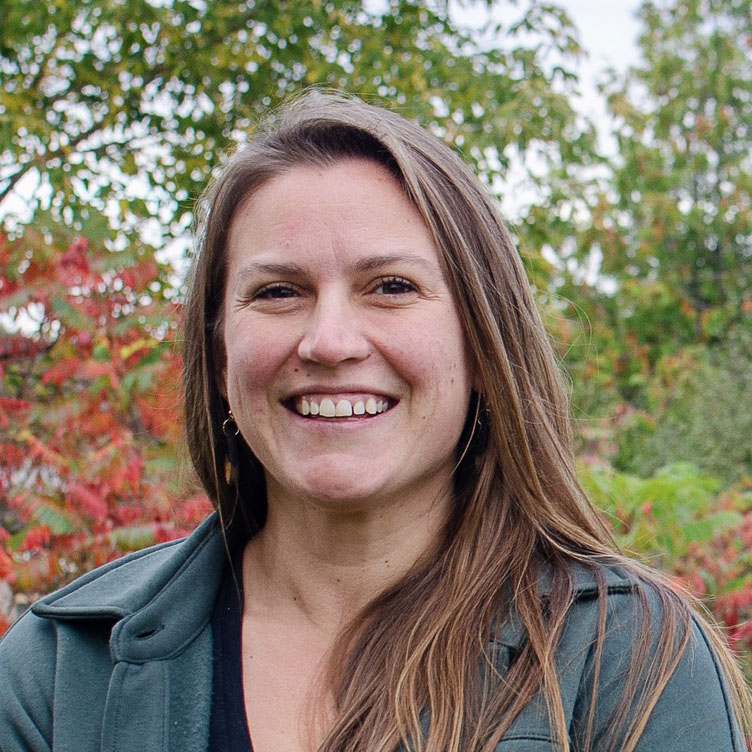
Mary-Claire Buell
Dr. Mary-Claire Buell is an Assistant Professor, cross-appointed with the School of Environment and Department of Forensic Science at Trent University, Ontario, Canada. She is also the founder and CEO of Collective Environmental, a consulting and independent research firm focused on collaborative approaches to investigating environmental issues impacting Indigenous communities. Dr. Buell’s research interests include investigating the source, fate, transport, and impacts of legacy and contemporary contaminants, examining the connections between contaminants and environmental justice, Treaty rights, and food security. Her research is transdisciplinary as it brings together environmental toxicology, chemistry, and community knowledges. Dr. Buell holds a PhD and MSc from Trent University and a BSc from the University of Guelph.
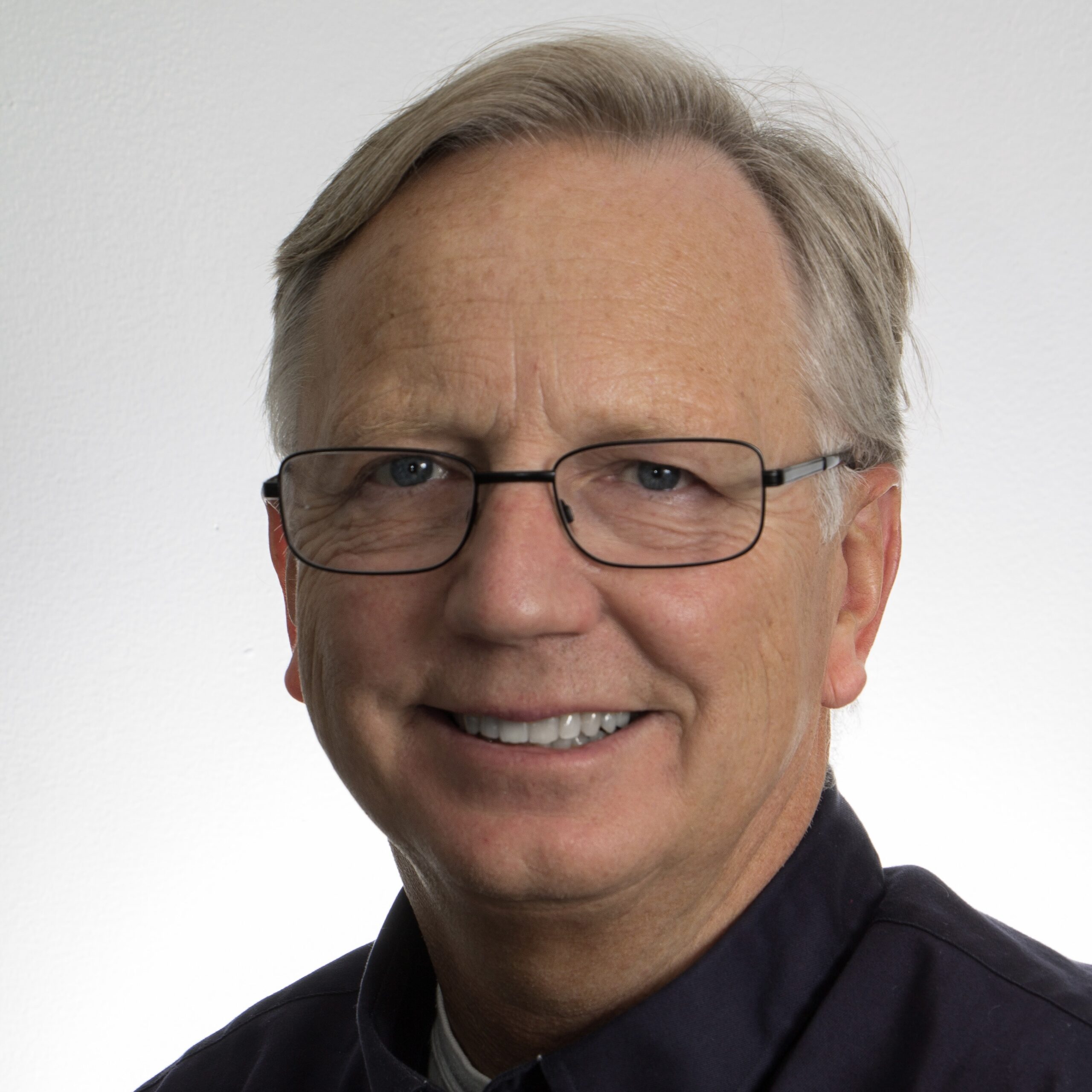
Leon Carl
Dr. Carl is currently an adjunct professor at the University of Guelph through the Center for Ecosystem Management and formerly served as the Great Lakes Forum Coordinator for the U.S. Geological Survey (USGS) and as the Regional Director (RD) of the USGS Midwest Region. He was appointed to the RD position in September 2008 and retired in 2018. Before being appointed as Regional Director for the Midwest Region, Dr. Carl was the Center Director of the USGS Great Lakes Science Center in Ann Arbor, Michigan from 2003-2008. He has worked for the Alberta Fish and Wildlife Division, the Ontario Ministry of Natural Resources, and served as Director of the Watershed Science Center at Trent University in Ontario.
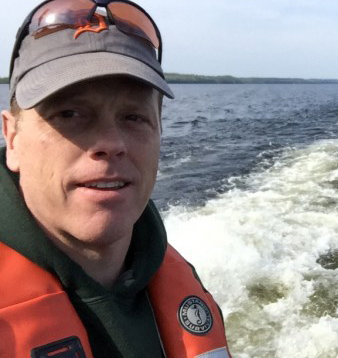
Aaron Fisk
Aaron is a faculty member at the University of Windsor. Currently he is a Professor and Canada Research Chair (CRC Tier 2) at the Great Lakes Institute for Environmental Research (GLIER) and the Department of Earth and Environmental Science. Aaron is internationally recognized for research on aquatic ecology and has spent his career studying aspects of aquatic trophic relationships, including fish movement and contaminant dynamics, with a focus on the Great Lakes.
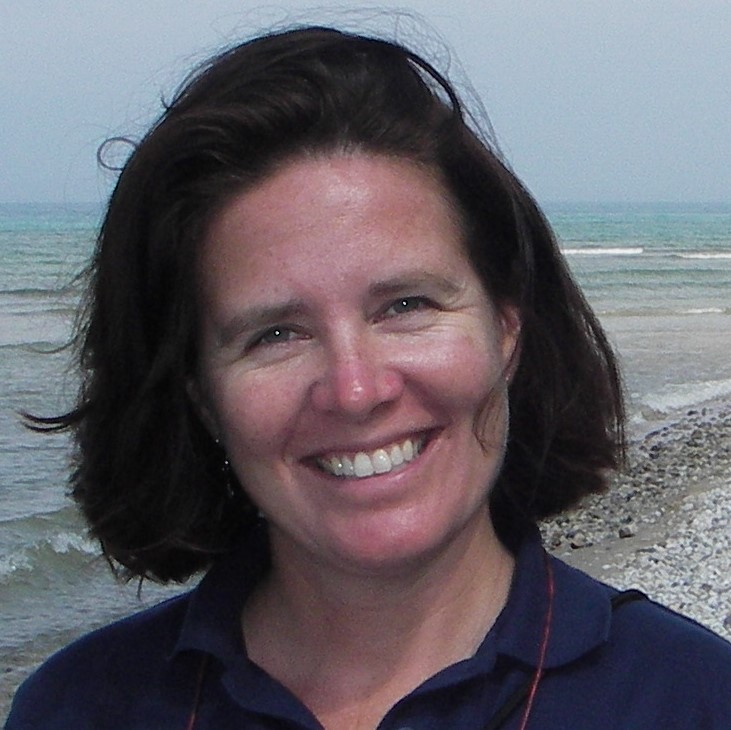
Stephanie Gandulla
Stephanie is a maritime archaeologist and the Research Coordinator for NOAA’s Thunder Bay National Marine Sanctuary, based in Alpena, Michigan. She has participated in archaeology projects around the world including the Great Lakes, the South Pacific, Sweden, Jamaica, and the Arctic. As a NOAA Scientific Diver, she enjoys exploring and documenting the dozens of historic shipwrecks in Lake Huron’s sanctuary waters.
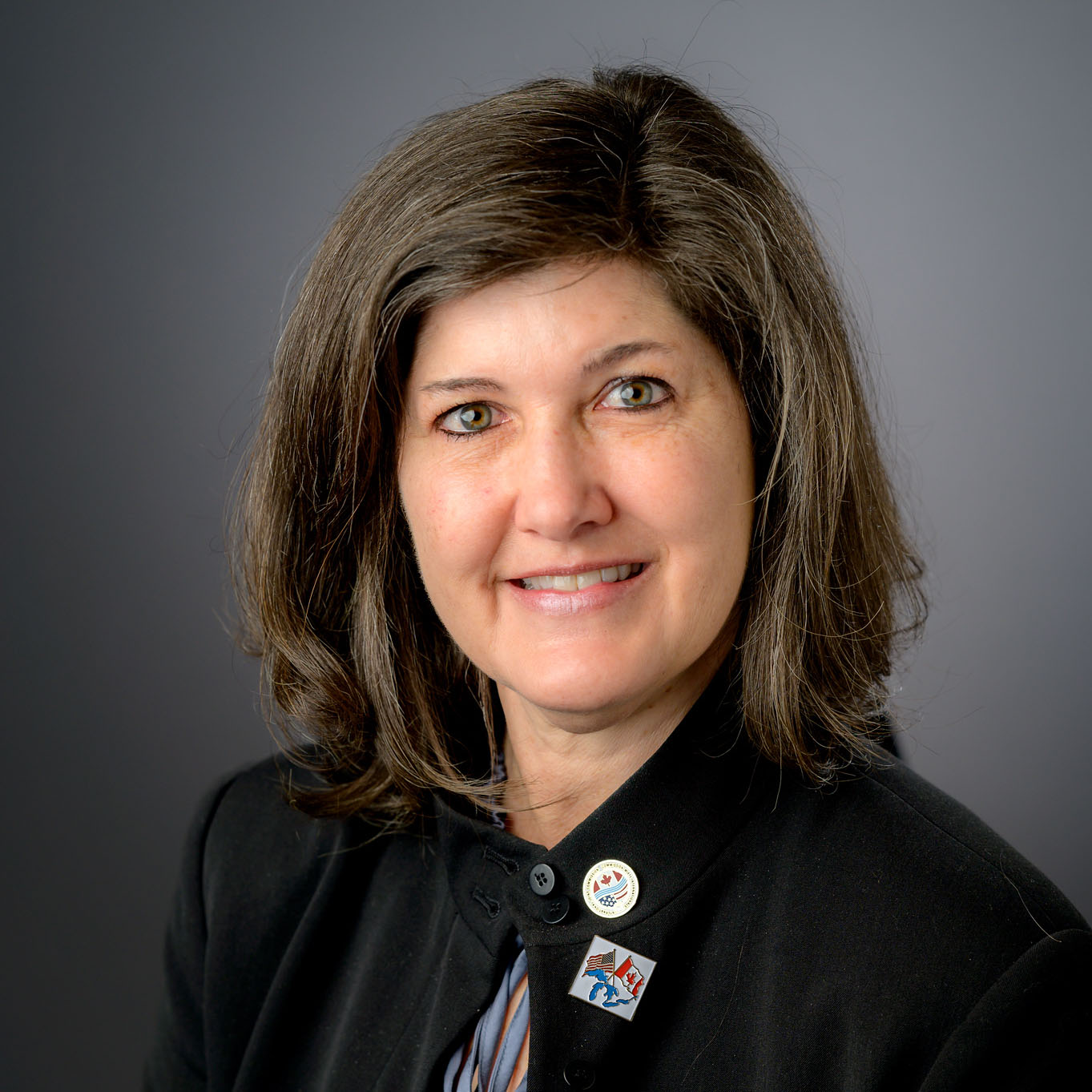
Heather Stirratt
Heather Stirratt is the Director of the International Joint Commission’s (IJC) Great Lakes Regional Office. As Director, she is leveraging key partnerships across the basin to elevate attention to and implementation of the IJC’s water quality recommendations. By enhancing the IJC’s binational connections across Canada and the United States (U.S.), Ms. Stirratt is increasing awareness of regional water quality challenges, monitoring and forecasting gaps to inform policy decision making, and the requirements for new freshwater science investments. Priority programmatic areas of interest to the IJC in the Great Lakes include water quality, early warning systems, enhanced science planning, and climate resiliency in a time of accelerated change.
Ms. Stirratt has a diversity of non-governmental, county, state, and federal work experience. She joined the IJC with over 27 years of professional experience in coastal and fisheries management. Most recently having served for 15 years as the Great Lakes Regional Lead for the National Oceanic and Atmospheric Administration’s Office for Coastal Management, providing co-management oversight of teams working to execute NOAA’s mission, address Great Lakes constituent needs, while providing the best available scientific information to inform decision making. Ms. Stirratt has been nationally recognized for her contributions to U.S. fisheries management of highly migratory species by the Department of Commerce and NOAA’s General Counsel. Ms. Stirratt has logged over 800 hours at sea conducting scientific research in addition to her policy and coastal county permitting work.
Ms. Stirratt holds a Master’s degree in Marine Affairs, for fisheries management and ocean and coastal law, from the University of Rhode Island and a Bachelor’s degree in Marine Affairs from the University of Miami, Florida. Heather’s passion for scientific understanding of natural systems extends into her personal hobbies as a hiker, topography and bathymetry map aficionado, and advanced/rescue scuba diver. She truly loves spending quality time outdoors with her husband and three children at home in Eagan, Minnesota.